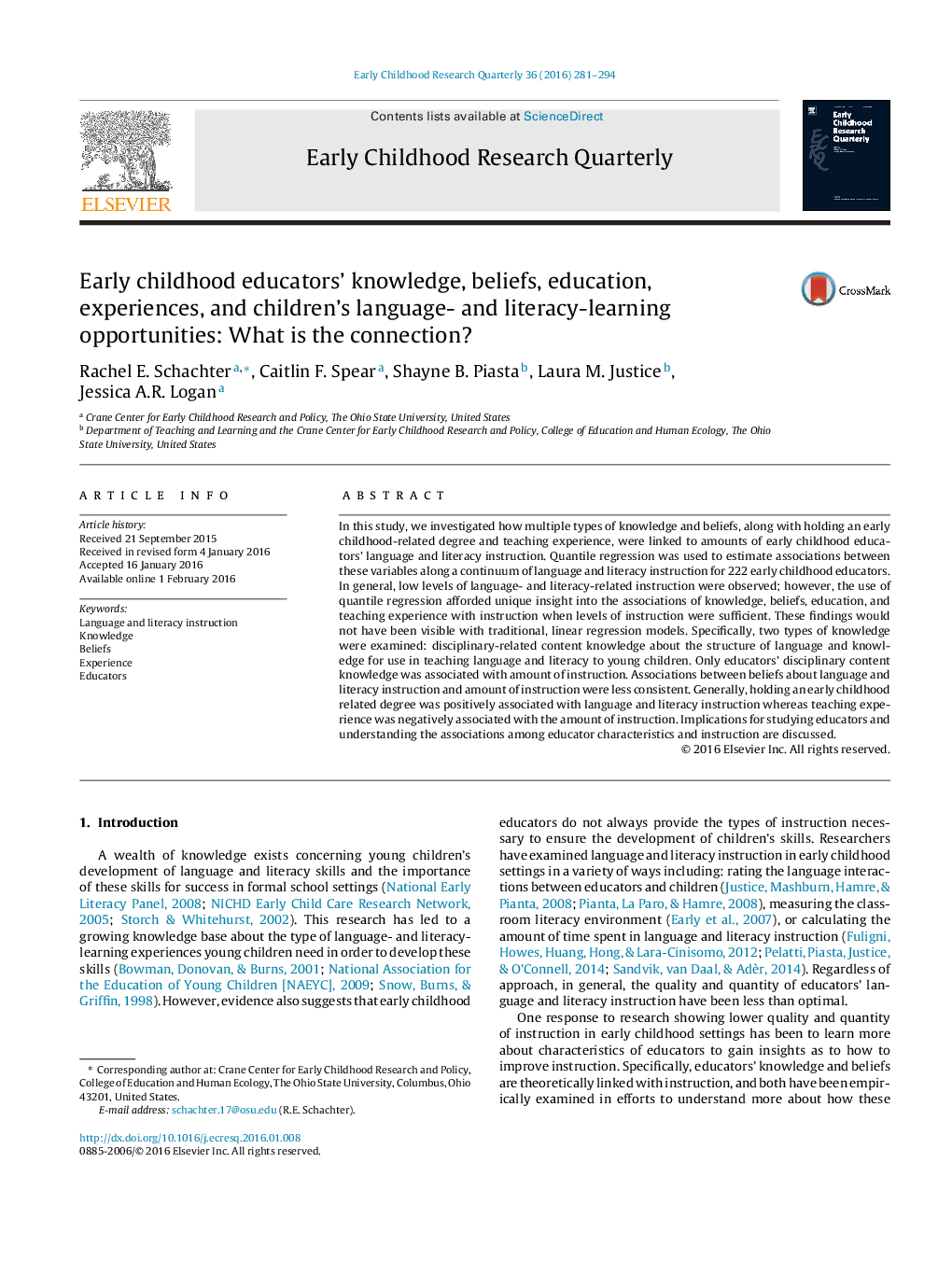| Article ID | Journal | Published Year | Pages | File Type |
|---|---|---|---|---|
| 353665 | Early Childhood Research Quarterly | 2016 | 14 Pages |
•Examined the associations among educator characteristics and instruction.•Used quantile regression to estimate associations along a continuum of instruction.•Strong floor effects for language and literacy instruction were observed.•Variable associations of characteristics with instruction were found.•Quantile regression provided unique insight into differential associations.
In this study, we investigated how multiple types of knowledge and beliefs, along with holding an early childhood-related degree and teaching experience, were linked to amounts of early childhood educators' language and literacy instruction. Quantile regression was used to estimate associations between these variables along a continuum of language and literacy instruction for 222 early childhood educators. In general, low levels of language- and literacy-related instruction were observed; however, the use of quantile regression afforded unique insight into the associations of knowledge, beliefs, education, and teaching experience with instruction when levels of instruction were sufficient. These findings would not have been visible with traditional, linear regression models. Specifically, two types of knowledge were examined: disciplinary-related content knowledge about the structure of language and knowledge for use in teaching language and literacy to young children. Only educators' disciplinary content knowledge was associated with amount of instruction. Associations between beliefs about language and literacy instruction and amount of instruction were less consistent. Generally, holding an early childhood related degree was positively associated with language and literacy instruction whereas teaching experience was negatively associated with the amount of instruction. Implications for studying educators and understanding the associations among educator characteristics and instruction are discussed.
